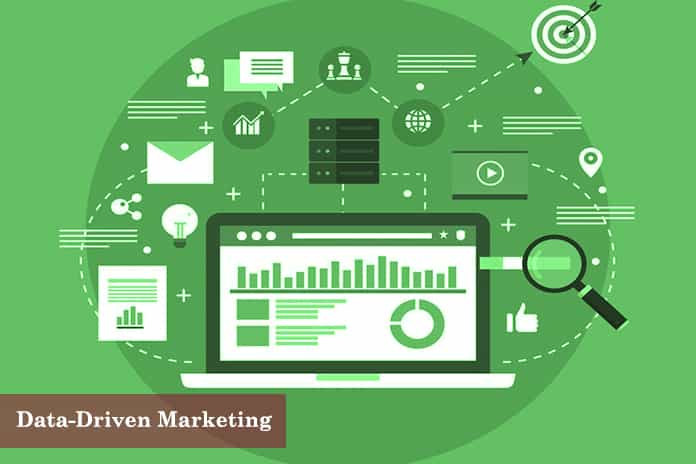Data-driven marketing consists of using the data of a company’s customers to develop personalized marketing campaigns in order to more effectively reach the audience. Discover the precise definition of data-driven marketing, but also the advantages it brings, the challenges related to this approach, the measures to take to use it in your business, and examples of use.
Data-driven marketing is a marketing strategy that uses information about a company’s customers to create optimized and personalized advertising campaigns. Directly linked to the growth of Big Data, this new form of marketing results from the increase in the quantity and quality of data available on consumers. According to IBM, all of humanity created 90% of the existing data between 2014 and 2016.
With this data, companies can now answer the questions “who, when, where, what” and use these answers to develop more creative and optimized marketing strategies. Data not only create personalized messages, more rewarding for the customer but also generates a very high return on investment for businesses.
Advantages of Data-Driven Marketing
The benefits of data-driven marketing are manifold. First, it allows businesses to deliver the right message, to the right audience, at the right time. Brands can create personalized campaigns to better attract customers’ attention and encourage them to buy, but also to create stronger relationships with customers and retain them more effectively. The data also makes it possible to group different customers into audience categories, always with the aim of proposing personalized campaigns for more efficiency.
Marketers can also use data to extend the reach of their campaigns to more channels, again based on the preferences and habits of their customers.
Many popular brands are also using data-driven marketing to improve the experience of their customers, by conducting satisfaction surveys to determine areas for improvement. Data can also allow, upstream, to create better products by understanding the needs and expectations of customers.
How To Use Data-Driven Marketing In Businesses?
To meet these challenges effectively, several measures must, therefore, be taken. To facilitate the integration of these new tools and the various technologies related to data-driven marketing, it may be wise to set up an automation process so that you can focus on the main objectives.
Furthermore, in order to ensure data management and use throughout the company, it is important that information is shared with all teams and departments for harmonious collaboration.
It is also imperative to monitor the competition to follow their relevant initiatives or learn from their mistakes. Data-driven marketing is constantly evolving, and you need to stay abreast of the latest trends to keep up to date.
Likewise, your data-driven marketing strategy must be constantly adjusted according to the results observed. Effective decisions must be replicated, while failed initiatives must be abandoned.
Some Examples of Data-Driven Marketing
Data-driven marketing offers businesses many opportunities. Examples of data possibilities include retargeting advertising. In concrete terms, if one of your customers is passionate about travel and has recently booked a stay by the sea in a seaside resort, you can use their data to automatically offer them offers for similar stays, or related activities such as surfing or diving lessons.
Data also makes it possible to take advantage of what is called digital signage in the era of social networks. By creating advertisements on platforms such as Facebook, Twitter and Instagram, you will be able to connect with your audience by allowing them to subscribe to your page with a single click and thus receive all the information you send.
The use of social networks will allow you to receive valuable information about your audience thanks to the information provided on their profiles.
Based on data from search engines, it is also possible to find out what keyword searches your customers are doing on the internet. You will also be able to find out which customers target your competitors.
Based on this information, it is possible to position yourself at the top of the search results most relevant to your activity by optimizing your natural referencing or by buying the top positions on search engines like Google. A simple way to increase traffic to your website.
Finally, data can also improve the effectiveness of your email campaigns. Group your customers according to their commonalities, and you will be able to target them more effectively. This technique not only automates email campaigns but also sends personalized messages optimized for each category of customers.
As you can see, data-driven marketing offers many possibilities. Like predictive marketing and artificial intelligence, it represents the future of marketing and gradually occupies a central place in marketing strategies. Faced with the development of these new technologies, marketing is undergoing a transformation.
This revolution concerns both B2C and B2B marketing, because the border between the two is gradually disappearing. Data-driven marketing can give you an undeniable advantage over your competitors, provided of course that you know how to meet the challenges associated with it.



